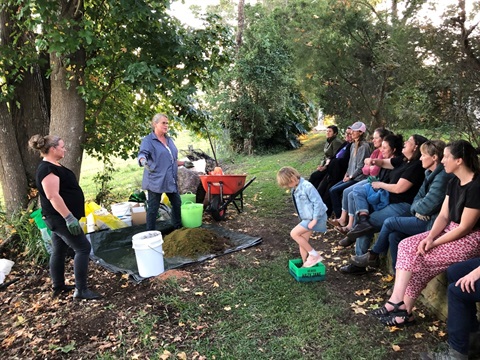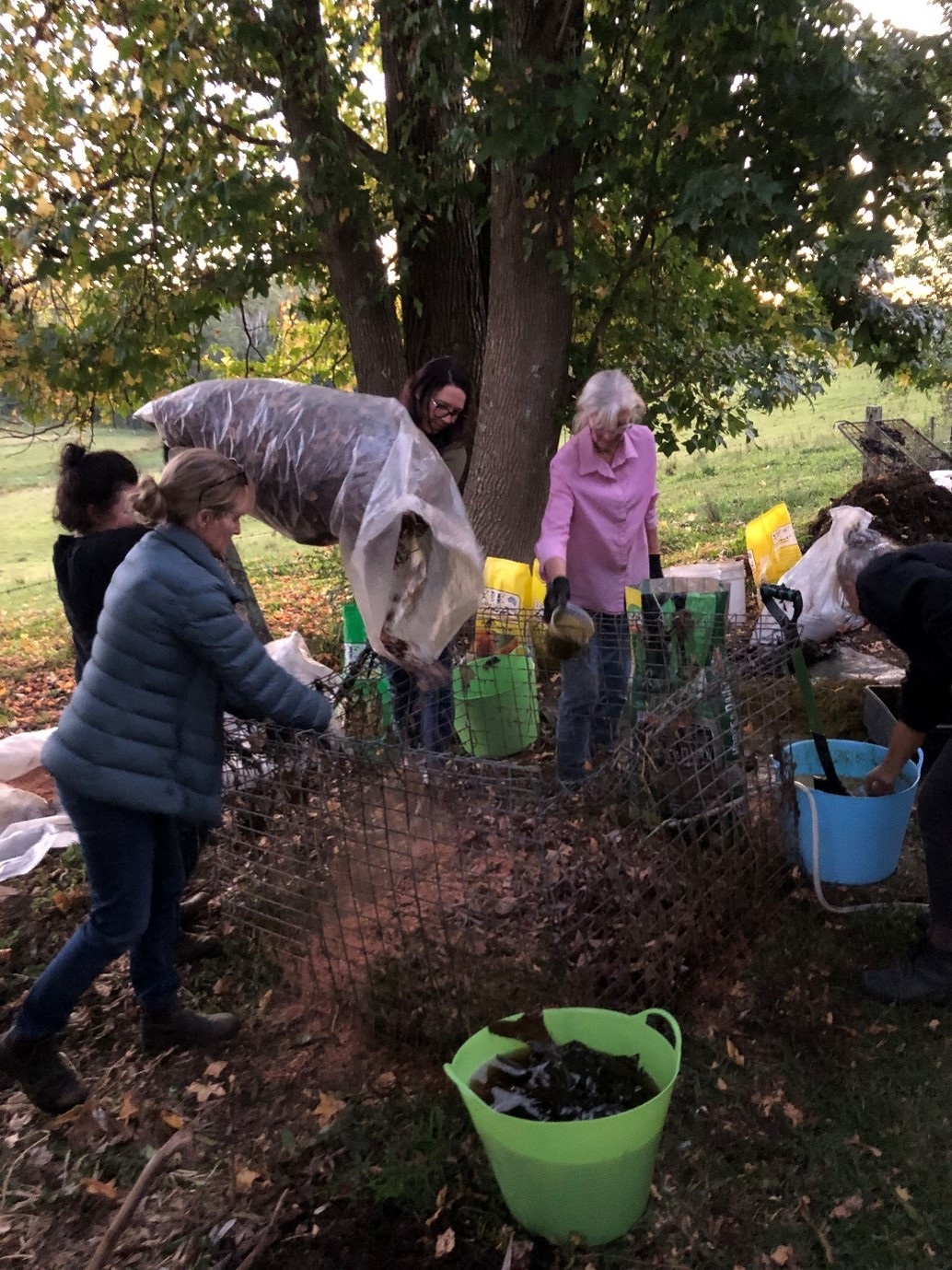Sustainable Schools Network delivering waste reduction initiatives
Published on 12 June 2023

Bellingen Shire Council and MidWaste are proud to be supporting the Bellingen /Nambucca Sustainable Schools Network which is a hub of fabulous ideas, information, resources and networking for teachers of environmental sustainability across our region. Jane Grebert, who coordinates the Network, has been busy reaching out to local schools and inspiring them to connect, collaborate and inspire a sustainable future for everyone.
Jane said, ‘This Network is an opportunity to be enriched with professional learning around sustainability and waste reduction in schools, connect and share ideas with like-minded teachers and be inspired in your teaching practice.’
During the International Compost Awareness Week in May, the Sustainable Schools Network was supported by MidWaste to deliver a truly hilarious and unforgettable compost-making event that was led by our region’s very own compost whisperer, Elizabeth Scott. Elizabeth defied all preconceptions you might have ever had about the art of making compost – it was fun. Yep! You heard that right. With Elizabeth at the helm, making compost is definitely something to put on your bucket list! Err, pardon the pun...
But making compost is not just about having fun. It’s also serious business. Did you know that food waste produces eight per cent of global greenhouse gas emissions? Each year, Australians waste around 7.6 million tonnes of food across the supply and consumption chain- that’s around 312[JR1] [JR2] [JR3] kg per person per year, costing each household up to $3,800. If food waste was a country, it would be the third largest greenhouse gas emitter, just behind the USA and China.
So converting food organic waste and garden organics (FOGO) into compost is not only fun, it’s also a great way to divert your methane-producing organic waste from landfill and turn it into carbon and high quality, nutrient-rich compost for your garden soil.
Bellingen Shire Council’s Waste Management Coordinator, Sam Tate, said, ‘Two-thirds of waste produced by households is organic (food scraps, plants and other matter). Food scraps and other organic matter dumped in landfill creates methane which is a powerful greenhouse gas.’
‘Wasted food also wastes the energy, water, resources, transport and money needed to produce and transport the food in the first place. Australia has set an ambitious goal to halve its food waste by 2030, but we are hoping our community can do even better,’ he said.

‘If we want to meet our Shire’s target of achieving Net Zero carbon emissions by 2040 and waste reduction targets, then we will all need to make sure we are diverting FOGO from the waste stream at every opportunity,’ he said.
‘There are loads of resources available to help our community to get on board the FOGO revolution. MidWaste runs regular compost workshops or you can jump online and check out one of the great tutorials. Anyone living in our Shire can also pick up subsidised composting equipment. And if you don’t have space at your place for composting on site, then putting your FOGO in the green-lid kerbside bin is a great way to recover organics that belong in our soils, not in landfill,’ he said.
If you are a teacher in our Shire, and looking for other great ideas and resources for your school to reduce waste and create a more sustainable future for everyone, why not sign up to the Sustainable Schools quarterly newsletter for updated information, or go to the Australian Association of Environmental Education NSW Sustainable Schools website. You can also contact Jane Grebert to find out how you can be involved in the next fantastic workshop being held 10 August during Keep Australia Beautiful Week: ‘Reducing Waste at School- Practical tips’ with Lisa Wriley and there will be an opportunity to play her Earthcare game too. Jane can be contacted on: jane.grebert@sustainableschoolsnsw.org.au
The Bellingen Nambucca Sustainable Schools Network 2023 is proudly supported by MidWaste, the Bellingen Shire and Nambucca Valley Councils, and in partnership with Sustainable Schools NSW, AAEE NSW and Bellingen Shire’s Centre for Ecological Learning Inc.